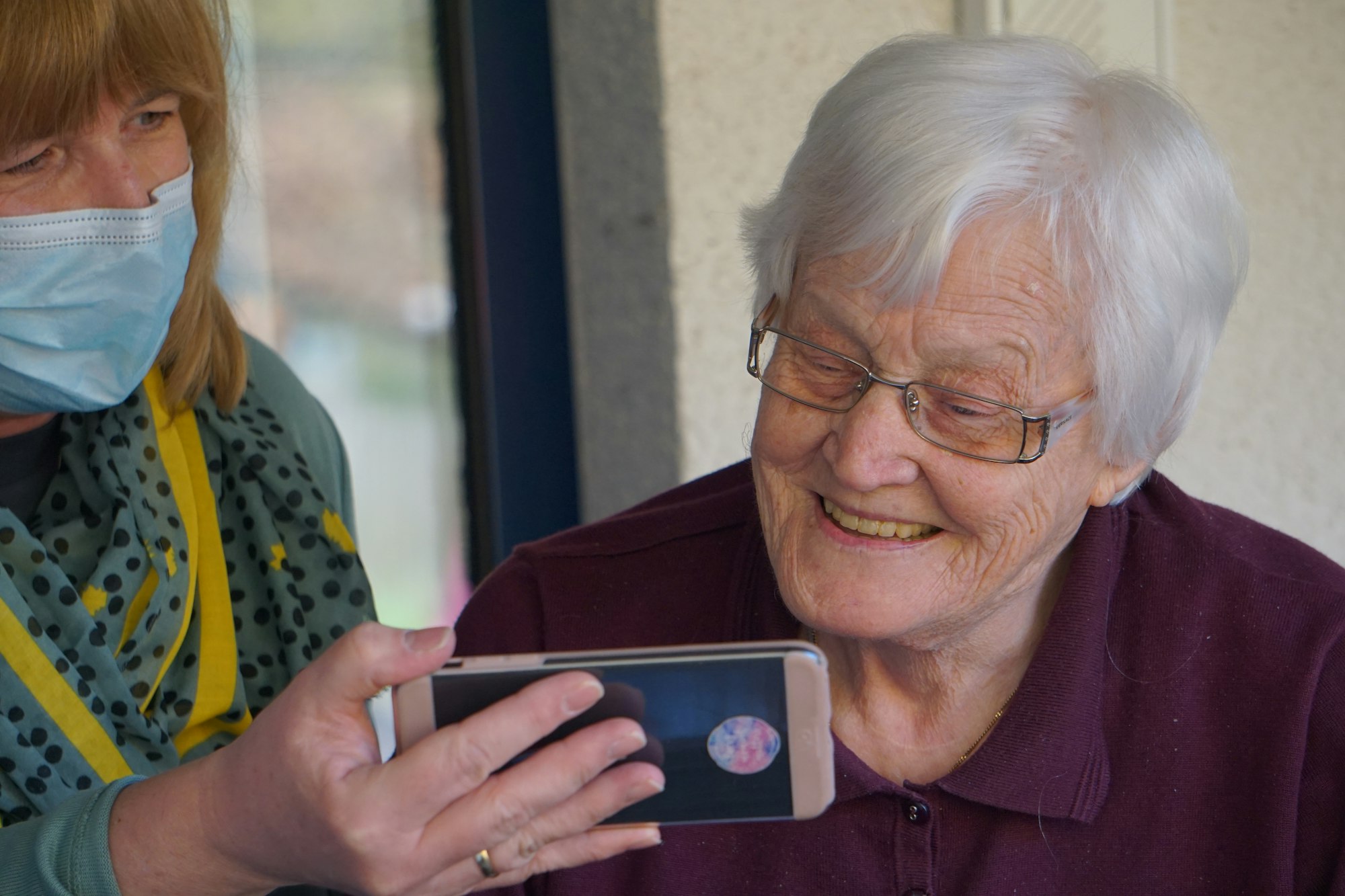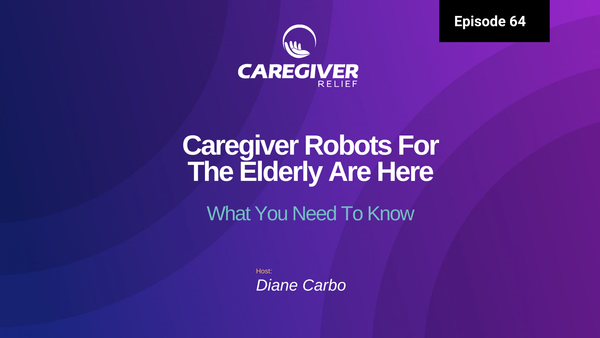The CARE Act: How States are Prioritizing Support for Family Caregivers
As the largest pillar of the long-term care system, family caregivers provide unpaid care worth $450 billion each year. Learn about the CARE Act and how states are working to support these caregivers and improve patient outcomes.

Caring for the family caregiver is becoming a focus of the individual states. The family caregiver is the single largest pillar of the long term care system providing $600 billion dollars of unpaid care each year. There are 57 million family caregivers in the US that provide care at home, keeping their family members out of alternative settings, such as nursing homes.
While we are living longer, we are not living healthier. The family caregiver is providing tasks such as bathing and dressing, and more. The duties of the family caregiver include complex tasks dressing changes, monitoring complex or specialized equipment, wound care and managing medications such as IV’s and injections. This care, once done only by medical professionals, is now expected, with little to no training or support by caregivers.
Surprisingly, 69% of family caregivers polled in a survey did not have even a visit from a home health care professional after discharge from the hospital. Sadly, most hospitals are not providing education and live training on simple things such as transferring, medication management or wound care. Many times, the family caregiver is given a discharge paper with instructions and no follow up.
The CARE (Caregiver Advise Record Enable) Act has been passed in several states and it is gaining momentum to be passed by all states by 2023. The act requires that the hospitals identify a family caregiver upon admission, notify them before discharge that they are expected to provide care at home, and offer instruction on medical tasks.
States Are Caring for the Family Caregiver…
The good news is, that the several states are making changes to support the family caregiver. In November of 2014, Arizona was the first state to enact the CARE Act ( Caregiver Advise, Record Enable). New Jersey was next.
Bills are currently under consideration in Oklahoma and Hawaii.
What are the key elements of the CARE Act?
- Designation of a caregiver in the hospital record
- Notification of the caregiver in a reasonable time prior to discharge
- Review of the discharge plan
- Demonstration by the caregiver that the care can be provided.
The Coalition of Geriatric Nursing Organizations supports that the implementation of the CARE act will improve both the caregiver and patient hospital experience.
The CARE Act applies to all hospitalized patients, including the frail elderly patient with multiple chronic needs. These patients account for the majority of unnecessary readmissions to the hospital. These readmissions cost Medicare $ 17 billion a year.
While the CARE Act will not change the fact that the care will still be provided by the unpaid family caregiver, it will encourage and provide a system for enhanced caregiver support.
Caregiver support will help encourage better outcomes for all.

Update on CARE Act 2023
Strengthening Support for Caregivers: The Impact of the CARE Act on Patient Experience
Introduction:
Smooth transitions from hospital to home are crucial for patients and caregivers. However, many feel unprepared and left out of the discharge planning process. As hospital stays become shorter, caregivers are taking on more responsibility without proper training or integration into the care plan. Failing to involve caregivers can negatively affect patient experience and post-discharge care quality, leading to readmissions.
Importance of Standardized Communication:
Policies that promote standardized communication between healthcare teams, patients, and caregivers can greatly improve patient experience and outcomes. The Caregiver Advise, Record, Enable (CARE) Act is one such policy that requires hospitals to involve caregivers in the care process by providing education, consultation, and recording their information in the health record. With 43 states and the District of Columbia implementing the CARE Act, it is crucial to assess its impact on patient experience.
Evaluating the Impact:
To understand the impact of the CARE Act, we conducted a study comparing hospitals in states that passed the act to those that did not. Using a difference-in-differences approach with an event study design, we analyzed patient-reported experience as the primary outcome.
Measuring Patient Experience:
Patient experience was measured using the Hospital Consumer Assessment of Healthcare Providers and Systems (HCAHPS) survey. This survey includes questions about communication with the clinical care team, overall hospital experience, and satisfaction. Communication measures assessed nurses' communication, physicians' communication, medication information, discharge information, and care transition information. Overall hospital experience was assessed through hospital rating and likelihood of recommending the hospital to others.
Implications for Patient Outcomes:
Understanding how state-level policies, like the CARE Act, influence caregiver inclusion in healthcare delivery can guide hospitals in improving patient outcomes. By analyzing patient experience data, we can determine the effectiveness of the CARE Act and its potential to enhance care transitions.
By strengthening support for caregivers, we can enhance the overall patient experience and improve healthcare outcomes.
Impact of the CARE Act: Significant Improvements in Patient Experience
From 2013 to 2019, 37 states passed the CARE Act.
This study examines the effects of the Act on patient experience in hospitals.
We analyzed data from 3019 hospitals, excluding those with missing data.
Hospitals in CARE Act states:
Experienced less missing data compared to non-CARE Act states.
Were more often nonprofit hospitals and less often located in the South.
Results:
Significant improvements in nursing communication in CARE Act states.
Similar patterns observed for whether patients would recommend the hospital.
Improvements continued in subsequent years for nursing and physician communication.
Overall hospital rating showed larger improvements, but not statistically significant.
Conclusion on the study:
The CARE Act has had a significant positive impact on patient experience.
Continued improvements in nursing and physician communication.
Further research needed to explore the specific factors contributing to these improvements.
Study Limitations:
Narrow focus on outcomes related to patient experience, not considering other domains
Reliance on hospital-level data, unable to assess CARE Act implementation at the clinical level
Low response rate for HCAHPS surveys, potentially limiting generalizability
Lack of evaluation on caregiver outcomes and costs
Possible unmeasured confounding that may affect findings
Inadequate control for hospital characteristics that may vary within states and over time
Bias due to missing data, but expected to have minimal impact
Key findings:
The CARE Act from 2013 to 2019 was associated with improvements in patient experience
Involving patients and caregivers in care transitions is crucial
State policies play a role in enhancing patient outcomes
With this passing of the CARE Act, family caregivers are getting the recognition and support that they deserve. The act acknowledges their important role in the healthcare system and aims to provide them with the necessary tools and resources to carry out their caregiving duties effectively.
This is a major step towards creating a more supportive environment for family caregivers. It not only benefits the caregiver, but also helps the patient by ensuring they receive proper care at home, potentially reducing the risk of readmissions and complications.
Moreover, this act shows a shift in focus towards preventative care rather than just reactive treatment. By educating and empowering family caregivers, it can lead to better health outcomes for both the patient and caregiver. It also has the potential to reduce healthcare costs by keeping patients out of hospitals and long-term care facilities.
The CARE Act is a great example of how small changes in policy can have a big impact on the well-being of caregivers and patients alike. As more states recognize the importance of supporting family caregivers, we can hope to see positive changes in the healthcare system as a whole. Let's continue to advocate for this act and spread awareness so that all states can pass it by 2023. Our family caregivers deserve all the recognition, support, and resources we can provide for them. Their selfless dedication to their loved ones should not go unnoticed and unappreciated. Let's work towards a healthcare system that truly cares for both patients and caregivers alike.
In conclusion, the passing of the CARE Act in several states is a major step towards recognizing and supporting family caregivers. It acknowledges the crucial role they play in providing care for their loved ones and aims to provide them with the necessary tools and resources to carry out their duties effectively. Let's continue to advocate for this act and support our family caregivers, who are essential pillars of our healthcare system. So let us all come together and make sure that the remaining states also pass the CARE Act by 2023, because our family caregivers deserve nothing less. They are truly unsung heroes and it's time we give them the recognition and help they deserve. Let's make a difference together!
Our Resources section can help you find the information and tools that you need. We have courses, videos, checklists, guidebooks, cheat sheets, how-to guides and more.
You can get started by clicking on the link below. We know that taking care of a loved one is hard work, but with our help you can get the support that you need.
Click here to go to Resources Section now!
You might also like this article:








